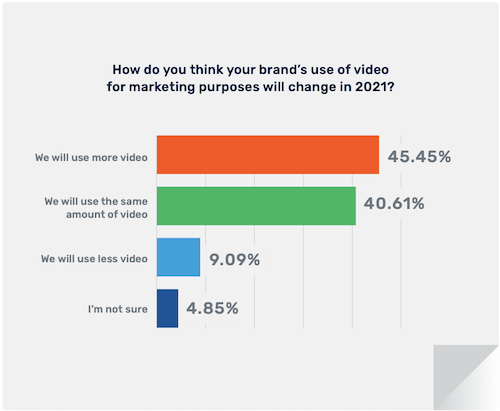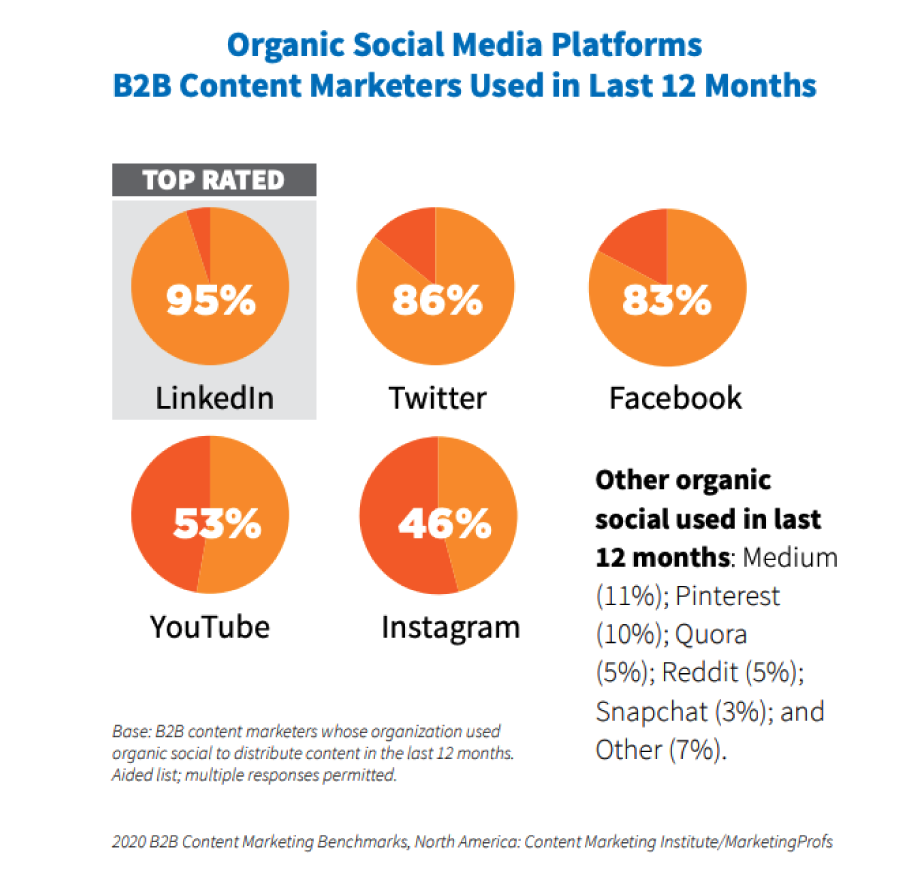In today’s tech-heavy world, digital marketing strategies are outpacing traditional print methods. Successful businesses are focusing heavily on online content – particularly in industrial marketing – because its cost and time efficiencies provide quick customer exposure and increased net revenues. Digital methods can also better track and measure a current campaign’s performance and return on investment. However, what is industrial marketing and how is it used in a digital space?
It might be important to know both answers to market your products and services effectively.
Key Takeaways
- Industrial marketing is typically synonymous with B2B marketing.
- SEO for manufacturers is key to driving website traffic.
- The top 3 social media platforms for industrial marketing are LinkedIn, Twitter, and YouTube.
What is Industrial Marketing?
Industrial marketing, also known as business-to-business (B2B) marketing, refers to any marketing strategy that targets other businesses as potential customers.
It directs those customers to your products and services through digital tactics such as search engine optimization strategies, online blogs and videos, and social media.
B2B marketing strategies are often more complex than those of their business-to-consumer (B2C) counterparts. This is because industrial marketing typically requires developing long-term relationships with customers and completing large-scale orders.
Four Industrial Marketing Examples
Businesses have many digital marketing strategies at their disposal, but four common ones used specifically in industrial marketing are as follows:
1. Search Engine Optimization (SEO)
SEO for manufacturers refers to incorporating certain words and phrases into your content that forces search engines to drive potential customers to your website.
Many marketing analysts agree that SEO for manufacturers is the foundation of digital marketing, because your website’s traffic depends heavily on its success.
In other words, the better you understand how to craft content in ways that rank your website highly in search results, the more customers will find your business.
However, SEO for manufacturers often extends beyond the initial search engine drive and continues to your website. This is typically the case when customers are searching for a very particular product.
For example, you might be selling a specific machine part used for an even more specific purpose within that machine, and customers might need to search by more than just a generic product name to find it.
As such, you might consider including the following search options on your website:
- Website SEO features
- Product numbers
- Product prices
- Product features
- Specification documents
Video: SEO for Industrial Marketers
2. Content Creation
Content creation in industrial marketing refers to the development of engaging content designed to captivate would-be customers. The objective is to educate your audience by explaining what your product or service does, and why it might be important to them.
This strategy purposefully veers away from the traditional hard sell, which customers tend to avoid in today’s online shopping environment. Since there is no need for customers to engage directly with marketers, they can simply leave your page for another website if they do not enjoy your content’s tone.
The benefits of content creation for industrial marketing include:
- Ongoing contact. When you create powerful content, you often attract a customer’s attention even if they have no immediate plans to purchase something. They might follow your social media page or subscribe to email blasts, which keep you in ongoing contact with potential buyers.
- Validating customers’ purchase decisions. Your relationship with a customer does not need to end after the first purchase. The more content you post for customer absorption, the more comfortable customers might feel about their decision to purchase from you. This increases the likelihood of them buying from you again in the future.
- Building audience trust. This relates to choosing education over hard sells. If you create thought-out content that addresses a customer’s potential concerns about your product or service (in lieu of a blatant sales pitch), customers are more likely to respond favorably.
- Adding more traffic. Content creation success is linked closely to SEO optimization for manufacturers. When a business crafts search-engine friendly content, they get more website hits.
3. Online Videos
You might run into situations where presenting information verbally and visually is more powerful than providing reading materials. If that is the case, consider using the following video styles:
- Interview-Style Video: These are brief interviews with employees who give potential customers a more intimate and “behind-the-scenes” view of the company. This strategy can generate a personal connection with customers while maintaining professionalism.
- Informative Video: These videos are less about storytelling and more about the facts. They typically include important statistics such as market share and customer satisfaction ratings. To avoid coming across as overly bland and uninteresting, businesses often provide this information through visually stimulating images.
- Tutorial video: These are directive videos that provide step-by-step instructions on how to do something. Businesses typically choose a topic that both appeals to their target audience and is relevant to current products and services.

4. Social Media
Social media marketing for manufacturers focuses heavily on lead generation. Businesses post content that prospective customers find valuable, and subsequently share across their own social networks.
The top three social media platforms for industrial marketing are as follows:
- LinkedIn. LinkedIn provides businesses with an opportunity to communicate their products and services to other businesses in an open community forum. It functions much like Facebook in that you can invite others to follow your page (and vice versa), but in a more professional setting.
- Twitter. Twitter posts include a character limit, so businesses typically use this platform for short bursts of information. The objective is triggering a consumer’s interest while not inundating them with details. You can also attach hashtags to key words and phrases that link your posts to others addressing similar topics.
- Facebook. Facebook allows businesses to include website URLs on their respective Facebook pages. Businesses can then post just enough details about a product or service to pique a customer’s interest and encourage them to visit the website for more information.

We Know Industrial Marketing
At Shanahan Strategy, we know how to answer the question “What is industrial marketing?”
Our dedicated team of marketing professionals has in-depth experience utilizing today’s most effective digital tools to better increase brand awareness for manufacturers and industrial companies.
Contact us today to discuss how we can help you get the most out of your industrial marketing efforts.

